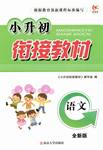题目内容
【题目】Directions: Translate the following sentences into English, using the words given in the brackets.
【1】这事他越想越不对劲。(The more ... )
【2】只需用上几个收纳小妙招,你就能拥有双倍的书房空间。(take)
【3】销售主管工作虽忙,但上周末带着太太和孩子去了郊野公园,享受自然和家庭时光。(as)
【4】危机时刻,我们要摒弃成见、同心协力,坚信人类的勇气、智慧和创造力无可限量。(there be)
【答案】
【1】The more he thinks about it, the less he feels it is right
【2】A few clever storage solutions/tricks can be all/what it takes to double the space of your study
或者 It takes just a few clever storage solutions/tricks to double the space of your study
【3】Busy as he is, the sales executive took his wife and children to the country park last weekend to enjoy nature and family time
【4】At a time of/In times of crisis, we need to abandon prejudice, be united and hold a strong/firm belief that there is no limit to human courage, Wisdom and creativity
【解析】
【1】
考查比较级。分析句子可知,应该用比较级的句型,the+比较级,the+比较级,主语是he,再根据其他汉语提示,故翻译为:The more he thinks about it, the less he feels it is right。
【2】
考查take句式。分析句子可知,It是形式主语,真正的主语是to double the space of your study,动词是take,宾语是a few clever storage solutions/tricks。再根据其他汉意,故翻译为:It takes just a few clever storage solutions/tricks to double the space of your study。或者使用表语从句,此时主语是A few clever storage solutions/tricks,表语从句是what it takes to double the space of your study ,或者转换成all为先行词的定语从句。再根据其他汉意,故翻译为:A few clever storage solutions/tricks can be all/what it takes to double the space of your study。
【3】
考查倒装句。分析句子可知,此句是让步状语从句,主句为一般过去时,as引导的从句为一般现在时,而且as引导的让步状语从句应为倒装句。主语是the sales executive,谓语动词是took,宾语是his wife and children。再根据其他汉语意思,故翻译为:Busy as he is, the sales executive took his wife and children to the country park last weekend to enjoy nature and family time。
【4】
考查there be句式。分析句子可知,其中that there is no limit to human courage, wisdom and creativity是同位语从句,解释说明前面的抽象名词belief。再根据其他汉语提示,故翻译为:At a time of/In times of crisis, we need to abandon prejudice, be united and hold a strong/firm belief that there is no limit to human courage, wisdom and creativity。

 学而优衔接教材南京大学出版社系列答案
学而优衔接教材南京大学出版社系列答案 小学课堂作业系列答案
小学课堂作业系列答案 金博士一点全通系列答案
金博士一点全通系列答案